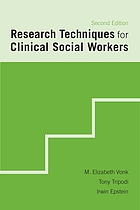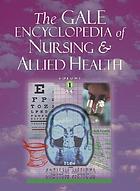Social Work: Getting Started
Guide to resources for UW Tacoma Social Welfare & Social Work students
Social Work Reference & Background
Books with Call Numbers are available in the Library. Reference books can be used in the library only. Books with links are available online.
-
 Code of Ethics
Professional ethics are at the core of social work. The profession has an obligation to articulate its basic values, ethical principles, and ethical standards. The NASW Code of Ethics sets forth these values, principles, and standards to guide social workers’ conduct.
Call Number: Ebook
Code of Ethics
Professional ethics are at the core of social work. The profession has an obligation to articulate its basic values, ethical principles, and ethical standards. The NASW Code of Ethics sets forth these values, principles, and standards to guide social workers’ conduct.
Call Number: Ebook -
Encyclopedia of social problems Covers all of the major theories, approaches, and contemporary issues in social problems and also provide insight into how social conditions get defined as social problems, and the ways different people and organizations view and try to solve them.
Call Number: Ebook -
Encyclopedia of social work Covers all aspects of social work from practice and interventions, social environments, social conditions and challenges, to social policy and history.
Call Number: Ebook -
Ethical standards in social work: a review of the NASW code of ethics The NASW code provides social workers with a comprehensive summary and analysis of ethical standards in the profession and an explicit statement of the profession's principal mission and core values.
Call Number: Tacoma Reference HV40.8.U6 R43 2006 -
 Research techniques for clinical social workers
Presents research concepts and skills, organized according to assessment and treatment formulation, treatment implementation and monitoring, and evaluation. Includes numerous practice cases and detailed exercises covering concepts and techniques.
Call Number: Ebook
Research techniques for clinical social workers
Presents research concepts and skills, organized according to assessment and treatment formulation, treatment implementation and monitoring, and evaluation. Includes numerous practice cases and detailed exercises covering concepts and techniques.
Call Number: Ebook -
 Social work speaks : National Association of Social Workers policy statements, 2009- 2012
Presents the policy statements adopted by the NASW Delegate Assembly in 2008. Each entry includes background material, an issue statement, a policy statement, legislative history, and references.
Call Number: Tacoma Reference HV88 .N686 2009
Social work speaks : National Association of Social Workers policy statements, 2009- 2012
Presents the policy statements adopted by the NASW Delegate Assembly in 2008. Each entry includes background material, an issue statement, a policy statement, legislative history, and references.
Call Number: Tacoma Reference HV88 .N686 2009 -
Social workers' desk reference Covers assessment and diagnosis, clinical social work, marital and family therapy, community practice, case management and forensic social work, and each chapter provides practice guidelines and treatment plans necessary for success.
Call Number: Tacoma Reference HV40 .S6464 2009
Health
-
 Gale encyclopedia of medicine
Call Number: Ebook
Gale encyclopedia of medicine
Call Number: Ebook -
 Gale encyclopedia of nursing & allied health
Call Number: Ebook
Gale encyclopedia of nursing & allied health
Call Number: Ebook
Electronic Books
-
Encyclopedia of Human Development SAGE Reference is proud to announce the Encyclopedia of Human Development, Three-Volume Set. Whether charting the emotional attachment of an infant to his or her parents and its long-term effects on well-being, media violence and adolescents' behaviour, or factors moderating the natural decline in physical and mental abilities associated with aging, the cross-disciplinary field of human development is one that captures interest among and holds practical relevance for the general public as well as academia. The Encyclopedia of Human Development presents state-of-the-art research and ready-to-use facts from the fields of psychology, individual and family studies and education. From A to Z, 600 entries cover topics as diverse as adolescence, cognitive development, education, family, gender differences, identity, longitudinal research, personality development, prenatal development, temperament and more. Key features and benefits include: - cross-disciplinary coverage, with contributions from and applications to the fields of psychology, education, human development and family studies and gerontology; - highlighting classic studies and theories and will provide brief biographies of notable researchers and theorists; - an introduction explaining the scope, rationale and audience for this Encyclopedia; - entries, organized A to Z, followed by a brief list of further readings and cross-references to other entries. Whilst entries are organized in the classical A to Z format, an alternative table of contents, a `reader's guide' is organized around themes or specific topic areas that allows readers interested in specific topics to find relevant encyclopedia entries more easily. Several `anchor essays' cover specific phases of the lifespan, for example: prenatal; infancy; childhood; adolescence; early and middle adulthood; later adulthood; and aging. A general bibliography builds from the further reading sections of the individual entries. Key Themes include: Abuse Adolescence Aging and Older Development Biographies Birth and Infancy Cognitive Development Death and Dying Early Childhood Development and Education Education Emotional Development Families and Family Development Genetics/Genetic Testing Health & Well Being Intelligence, Ability and Aptitude Language and Communications Laws and Policies Learning and Memory Mental Disorders Middle Adulthood Milestones Moral Development Older Adulthood and Old Age Parenting Personality Physical and Biological Development Professional Organizations Race and Ethnicity Religion Sexuality and Sex Social Development and Social Behavior Social Learning Theory Special Groups Statistics, Research Methods, and Measurement Substance Abuse Theories and Ideas About Development
Call Number: Ebook -
 Encyclopedia of Multicultural Psychology
SAGE Reference is proud to announce the Encyclopedia of Multicultural Psychology. During the past 30 years, the study of racial and ethnic minority issues in psychology has evolved to what can be considered a significant and rapidly growing subfield within psychology. This volume represent a thorough overview of the psychology of racial, ethnic and minority issues and covers the breadth of psychology viewed through the lens of the racial and ethnic minority experience. Coverage includes contributions from all the major areas including: social; developmental; methodological; clinical; industrial/organizational; health; educational; and school and family psychology. Key features include: - supportive discussion on culture, not race, as the best way to understand differences among individuals; - a focuses on culture to provide a reference to the terms, concepts and issues used in this field; - a thorough overview of the psychology of racial, ethnic and minority issues and covers all of the major ethnic groups and subgroups; - a discussion on the sociological issues as well as conceptual issues relevant to the field of multicultural psychology. Key themes include: - Conceptual Issues; - Cultural Concerns; - Ethnic Groups; - Indigenous Concerns; - Measurement; - Professional Organizations; - Psychopathology; - Sociological Issue; - Treatment. Topics covered include: - academic achievement; - acculturation; - affirmative action; - community interventions; - education; - health; - immigrants; - prejudice; - racial identity development; - social ecology; - stereotyping; - teaching multiculturalism; - tokenism; - values; - violence; - worldviews.
Call Number: Ebook
Encyclopedia of Multicultural Psychology
SAGE Reference is proud to announce the Encyclopedia of Multicultural Psychology. During the past 30 years, the study of racial and ethnic minority issues in psychology has evolved to what can be considered a significant and rapidly growing subfield within psychology. This volume represent a thorough overview of the psychology of racial, ethnic and minority issues and covers the breadth of psychology viewed through the lens of the racial and ethnic minority experience. Coverage includes contributions from all the major areas including: social; developmental; methodological; clinical; industrial/organizational; health; educational; and school and family psychology. Key features include: - supportive discussion on culture, not race, as the best way to understand differences among individuals; - a focuses on culture to provide a reference to the terms, concepts and issues used in this field; - a thorough overview of the psychology of racial, ethnic and minority issues and covers all of the major ethnic groups and subgroups; - a discussion on the sociological issues as well as conceptual issues relevant to the field of multicultural psychology. Key themes include: - Conceptual Issues; - Cultural Concerns; - Ethnic Groups; - Indigenous Concerns; - Measurement; - Professional Organizations; - Psychopathology; - Sociological Issue; - Treatment. Topics covered include: - academic achievement; - acculturation; - affirmative action; - community interventions; - education; - health; - immigrants; - prejudice; - racial identity development; - social ecology; - stereotyping; - teaching multiculturalism; - tokenism; - values; - violence; - worldviews.
Call Number: Ebook -
Encyclopedia of the History of Psychological Theories This work will survey the entire range of thinking in psychology, from ancient times to the present, encompassing philosophies and theories of mind that pre-date our modern conception of psychology as a science, and extending to the current findings of neuroscience. It will set the theories into their historical context and cross-reference key influences, such as Darwin s on Freud. Fifteen hundred entries will comprise key figures, theoretical concepts, false theories, historical events, and seminal writings. International in scope, this project will involve history of psychology experts from around the world and the coverage of topics will be set in global context. The aim will be to provide a reference work of more depth than discussions that are currently available in textbooks, with the ability to connect to a multitude of relevant topics. This work will provide a picture of psychology as it has emerged into the present time and position it among other related fields such as anthropology, sociology, philosophy, and medicine."
Call Number: EbookISBN: 9781441904638 -
The Corsini Encyclopedia of Psychology and Behavioral Science, 4 Volume Set For more than twenty years, this indispensable resource has been the reference of choice for psychologists, researchers, teachers, and students who need up-to-date and comprehensive information in the fields of psychology and behavioral science. Updated and expanded to include much new material, this paperback is the only reference source that effectively blends psychology and behavioral science. This edition features over 1,200 entries, sixty percent of which are substantially revised or altogether new; contributions from over seven hundred experts from around the world; a bibliography of over 10,000 citations.
Call Number: EbookISBN: 9780471239499
